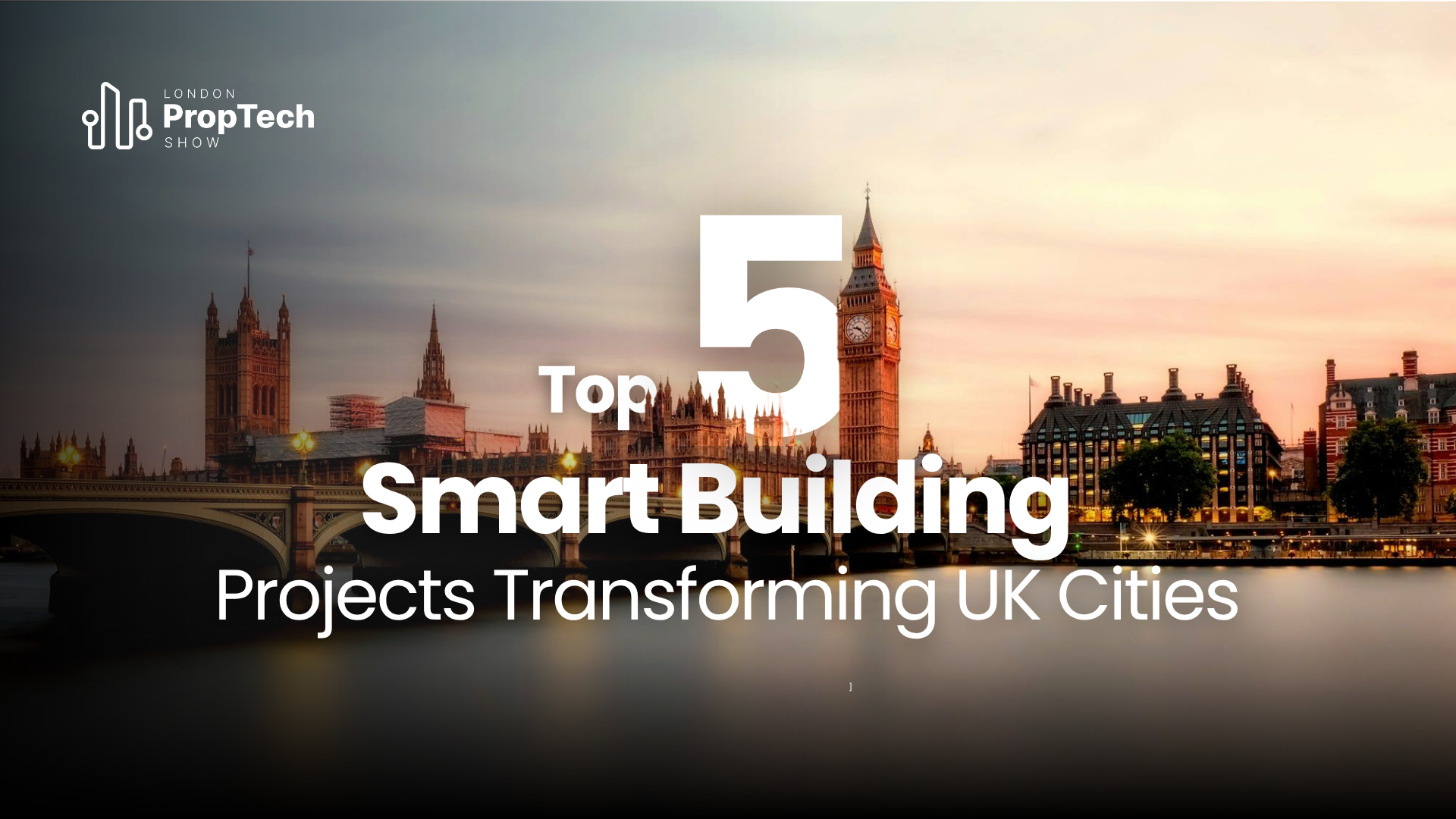The United Kingdom is at the forefront of smart building innovation, with cities like London, Manchester, Birmingham, and others rapidly adopting cutting-edge technologies to create sustainable, efficient, and future-ready urban environments. Here are the top five smart building projects currently transforming UK cities, each showcasing the latest advancements in digital infrastructure, energy management, and user experience.
1. Google HQ, London: The “Landscraper” of King’s Cross
London’s skyline is being redefined by Google’s new UK headquarters, a 60,400-square-metre “landscraper” in King’s Cross. Designed to accommodate up to 4,500 employees, this building is a model of smart, sustainable architecture. Key features include:
- Rooftop Garden: With 250 trees and 40,000 tons of soil, the rooftop serves as a green oasis, enhancing biodiversity and improving air quality.
- Smart Facilities: The building integrates advanced systems for energy management, lighting, and climate control, all managed via a central digital platform.
- Sustainability: Google is pursuing both LEED and BREEAM certifications, underlining its commitment to energy efficiency and low carbon emissions.
- Wellbeing Amenities: Facilities such as a basketball court, gym, and swimming pool are designed to support employee health and productivity
This headquarters exemplifies how global tech giants are setting new standards for smart, eco-friendly office environments in the UK.
2. Enterprise Wharf, Birmingham: The City’s First Truly SMART Building
Birmingham’s Innovation Quarter has welcomed Enterprise Wharf, a landmark 10-storey, 120,000 sq ft building developed by Bruntwood SciTech. As Birmingham’s first “truly SMART” building, it offers:
- Integrated Smart Infrastructure: Over 90 user experiences are managed through a digital backbone, from environmental controls to security and access.
- Energy Efficiency: The building boasts an EPC A rating, with systems designed to optimise energy use and reduce operational costs.
- Tech Ecosystem: Located within the West Midlands’ largest tech and digital cluster, it supports over 120 start-ups and scale-ups in fintech, cyber security, AR/VR, and more.
- Innovation Hub: Enterprise Wharf is part of a broader masterplan to establish Birmingham as a global tech and health innovation hub.
Enterprise Wharf demonstrates how smart infrastructure can drive both economic growth and sustainability in the UK’s second city.
3. Manchester’s Triangulum Project: Pioneering Smart City Integration
Manchester’s Triangulum Project, part of the European Smart Cities and Communities Lighthouse initiative, is transforming the Oxford Road corridor into a knowledge-driven, low-carbon district. Highlights include:
- Cloud-Based Energy Management: A central platform reduces grid dependence and, if scaled citywide, could save Manchester up to 57,000 tonnes of CO2 annually—the equivalent of taking 12,000 cars off the road.
- Collaborative Innovation: The project brings together Manchester City Council, Siemens, and local universities, fostering a culture of digital transformation.
- Urban Sustainability: Triangulum’s success is a blueprint for how smart technology can be used to achieve significant carbon reductions and operational efficiencies.
Manchester’s leadership in smart city integration is positioning it as a model for urban innovation across Europe.
4. Climate Innovation District, Leeds: A Blueprint for Green Urban Living
Leeds is home to the Climate Innovation District, a £125 million project that has transformed an industrial area into a modern, sustainable community. Key aspects include:
- Low-Carbon Homes: The district features 516 energy-efficient homes built with sustainable materials and equipped with smart energy systems.
- Smart Technologies: Residents benefit from digital platforms that manage heating, lighting, and energy consumption, driving down costs and emissions.
- Community Focus: The district is designed for multi-generational living, supporting a vibrant, connected community.
Leeds’ Climate Innovation District stands out as a leading example of how smart building principles can be applied at scale to create greener cities.
5. Glasgow’s IoT Hub: Building Europe’s Largest Smart Ecosystem
Glasgow is setting new benchmarks with its £2.5 million investment in Europe’s largest Internet of Things (IoT) hub, located at ‘thebeyond’ in SkyPark. The project’s ambitions include:
- IoT Innovation: The hub is projected to host 100 companies by the end of 2025, fostering a collaborative ecosystem for smart city solutions.
- Carbon Neutrality: Glasgow aims to become the UK’s first carbon-neutral city, with initiatives focused on decarbonised heating, expanded EV infrastructure, and smart grid investments.
- Public-Private Partnership: The project is a collaboration between the UK Government, Glasgow City Council, and the Smart Things Accelerator Centre (STAC), driving both economic and environmental benefits.
Glasgow’s IoT hub is a testament to the city’s commitment to leveraging smart technology for urban transformation and sustainability.
The Impact of Smart Buildings on UK Cities
Smart buildings are not just about technology, they are central to the UK’s drive towards net zero by 2050. The built environment contributes approximately 25% of the UK’s carbon footprint, making the adoption of smart solutions critical for meeting national climate goals. Benefits include:
- Energy Savings: Smart buildings can reduce energy use by up to 20%, significantly lowering operational costs.
- Regulatory Compliance: With the Future Homes Standard 2025 mandating 75-80% lower carbon emissions in new buildings, smart technology is now essential for compliance.
- Enhanced User Experience: Automated controls and predictive maintenance improve comfort, productivity, and reliability for occupants.
With the UK construction market projected to reach £168.6 billion by the end of 2025 and a growing focus on sustainability and digital innovation, the momentum behind smart building projects is only set to accelerate. Developments in London, Manchester, Birmingham, Leeds, and Glasgow are not only transforming their cities but also setting global benchmarks for what smart, sustainable urban living can achieve. As these projects continue to evolve, they will play a vital role in shaping the future of UK cities—making them greener, smarter, and more resilient for generations to come.


